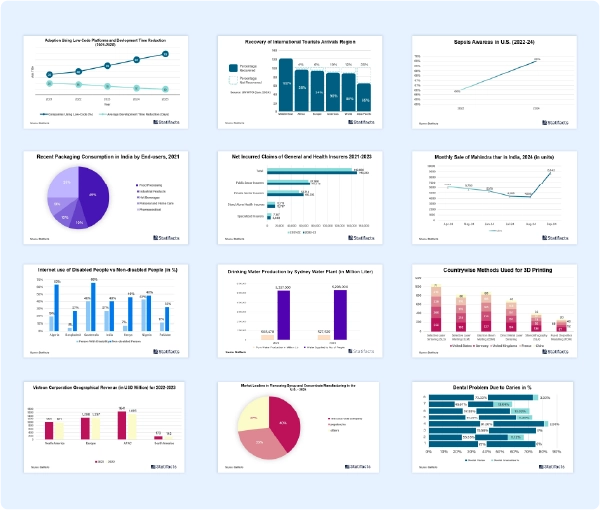The U.S. medical affairs outsourcing market size accounted for USD 548 million in 2024 and is predicted to touch around USD 1,098.32 million by 2034, growing at a CAGR of 7.2% from 2025 to 2034.
U.S. Medical Affairs Outsourcing Market Report Highlights
- The medical writing & publishing services segment dominated the U.S. medical affairs outsourcing market in 2024 with the largest market share.
- The medical science liaisons (MSLs) services segment is expected to grow fastest during the forecast period.
- The medical equipment and supplies industry segment dominated the U.S. medical affairs outsourcing market with the highest revenue share.
- The medical supplies segment is anticipated to be the fastest growing during the forecast period.
The U.S. medical affairs outsourcing market refers to the production, distribution, and application of medical affairs outsourcing in which pharmaceutical, medical devices, and other healthcare organizations are outsourcing medical affairs services to contract research organizations to limit liability exposure by working with a well-trained outsource company, prevent process delays, reduce regulatory compliance risk, and reduce operational costs. Medical affairs focus on scientific and medical aspects; they may collaborate with marketing and sales teams to ensure that promotional materials and activities are compliant, accurate, and new medical evidence. Medical affairs teams connect with the research and commercial functions of a business by communicating the impact of a device or therapy to providers. Outsourcing is transferring portions of work to outside suppliers to reduce costs.
The main types of outsourcing in pharma include sales/marketing, packaging, manufacturing, clinical trials, and research and development. Outsourcing medical affairs enables companies to access world-class scientific, operational, and regulatory expertise to manage their medical programs more cost-effectively and help with pressing development timelines. Medical affairs outsourcing offers healthcare organizations the benefit of focusing on core competencies while delegating specialized functions to external providers, improving operational efficiency, and reducing the burden on internal teams.
The increasing prevalence of infectious diseases needs improved disease management strategies and interventions driving the growth of the U.S. medical affairs outsourcing market. The expertise offered by medical affairs outsourcing significantly contributes to enhanced medical communication and data, regulatory compliance enhancement, and clinical trial management. It helps to suppress the rise of communicable diseases by facilitating enhanced disease control and intervention strategies. By providing unbiased, accurate, and up-to-date medical information, medical affairs teams aim to improve understanding of diseases and treatments.
Outsourcing can help you leverage knowledge and skills along with your complete supply chain. It can also help streamline processes and enhance efficiency, better time management, improved focus on innovation, access to advanced technology and infrastructure, risk management and continuity, enhanced customer service, increased flexibility, and cost efficiency.
Technological innovation is driving the growth of the U.S. medical affairs outsourcing market. Medical affairs with innovative solutions transforming the outsourcing market. In life science companies, medical affairs are redefined as catalysts for innovation, and traditional data collection methods have become insufficient. Real World Evidence (RWE) data collection using digital health tools and cross-functional inputs plays an important role in supporting R&D efforts, product launches, and market access.
Advanced technology includes cloud computing, robotic process automation (RPA), blockchain technology, telemedicine and remote patient monitoring (RPM), and artificial intelligence (AI). Cloud computing offers scalable, secure storage for patient data. Robotic process automation (RPA) automates repetitive administration tasks to reduce mistakes and save time. Blockchain technology improves data sharing and secures patient data. Telemedicine and RPM expand access to care and track patient health in real-time.
Artificial intelligence (AI) automates tasks like billing and scheduling while enhancing care decisions, which is driving the growth of the U.S. medical affairs outsourcing market. AI makes medical affairs outsourcing smarter and faster by automating repetitive tasks and helping with better decision-making. AI is used to streamline scheduling, insurance verification, and claims processing. AI-based chatbots can answer patient questions 24/7, reducing staff workload and enhancing patient satisfaction. Predictive analytics helps to identify health issues early and create personalized plans.
AI helps to reduce costs and increase productivity. AI-based medical billing and coding technologies take over wretched work for human administration personnel, like billing processes, to enable them to handle more critical duties. This helps to increase productivity and then becomes an effective business operation. AI can aid in the diagnosis and treatment of rare diseases. By scanning large datasets to find similar cases, AI can help clinicians to diagnose more quickly and also find examples of treatments that have been efficient in people with this condition.

